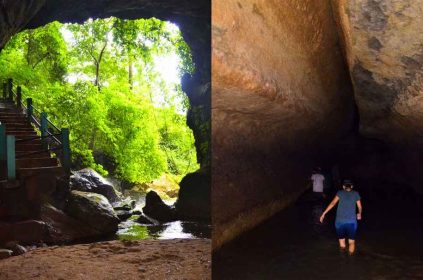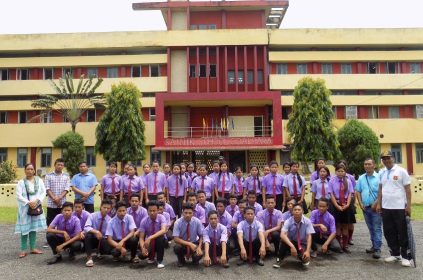Meghalaya, located in India’s Northeast, is famous for its lush green valleys, stunning waterfalls like the Seven Sisters Falls, and unique living root bridges—natural wonders created over centuries. However, growing tourist numbers have brought environmental challenges, especially from plastic and non-biodegradable waste.
Introducing the Green Deposit Scheme
To combat this, the Meghalaya Tourism Department has launched an innovative Green Deposit scheme. This program charges tourists a refundable ₹100 deposit when they bring plastic bottles, snack wrappers, or other non-biodegradable items to sensitive eco-tourism sites such as the living root bridges in Nongriat.
Tourists pay the deposit upon entering, and if they return with their waste, the amount is refunded. This initiative encourages visitors to take responsibility for the waste they bring, reducing litter and protecting the fragile environment.
A Community-Driven Approach
The scheme was developed through collaboration with local village councils (Dorbar Shnongs), community leaders, and cooperative groups. These local bodies help collect deposits, ensure proper waste disposal, and maintain the cleanliness of popular tourist spots.
A member of the Nongriat village council shared, “Since launching this scheme, we’ve noticed a significant drop in litter. Tourists are more aware, and our community feels empowered to safeguard our natural heritage.”
Balancing Tourism and Sustainability
Cyril V Diengdoh, Tourism Commissioner, emphasized, “Tourism is important for Meghalaya’s economy, but it should not harm the environment. Our goal is not to punish visitors but to encourage responsible behavior.”
The Green Deposit aligns with Meghalaya’s broader commitment to sustainable tourism, supporting efforts to balance economic growth with environmental protection. It promotes awareness about the importance of preserving ecologically sensitive areas.
Support from Environmental Organizations
Local NGOs like the Green-Tech Foundation are active partners in this mission. The foundation has successfully carried out clean-up drives and river rejuvenation projects across districts such as East Khasi Hills and West Garo Hills.
Their efforts include removing tonnes of plastic waste from rivers and tourist hotspots like Shillong Peak, raising public awareness about the environmental impact of unchecked tourism.
Challenges and Future Plans
Despite its success, the scheme faces challenges like enforcement in remote areas and managing high tourist volumes during peak seasons. The government remains committed to refining the program based on community feedback.
Future expansions include extending the deposit scheme to more locations and installing refillable water stations to discourage single-use plastics. Plans also involve using technology, like QR-code tracking, to streamline deposit collection and waste management.
A Step Towards Responsible Travel
The Green Deposit scheme is a significant step toward ensuring that Meghalaya’s natural beauty remains intact. Tourists leave not only with unforgettable memories but also a reminder to travel responsibly.
As a visitor at Dawki said, “The crystal-clear Umngot River is breathtaking. Initiatives like this help keep such places clean and pristine for generations to come.”
Meghalaya’s Green Deposit scheme proves that environmental care and tourism can thrive together through thoughtful policies and active community participation.













